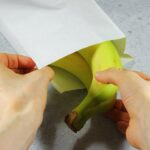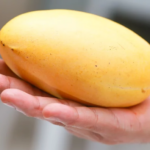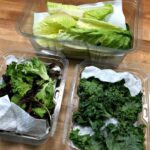Remove damaged or bruised parts before refrigeration
Damaged or bruised areas of produce tend to produce ethylene gas, which can affect the intact parts or spread to surrounding foods. Therefore, it is essential to cut away these sections before placing them in the refrigerator.
Do not wash vegetables before refrigerating
Leaving wet vegetables in the refrigerator can cause them to become soggy or rotten as it creates an ideal environment for bacteria and mold to thrive. If you have a habit of washing your produce after purchasing, ensure they are thoroughly dried before placing them in the fridge.
Store vegetables and fruits separately

As mentioned earlier, fruits tend to produce ethylene gas as they continue to ripen. Vegetables absorb this gas and may turn yellow, spoil, or change in taste. Therefore, it is best to use separate bags or containers for each type of produce.
Do not cut vegetables before refrigeration
Avoid cutting vegetables before storing them in the refrigerator, as this can lead to a loss of important nutrients and create a favorable environment for bacterial growth.
Use specialized bags or containers for produce
Use specialized bags or plastic containers to store each type of vegetable or fruit to ensure airtightness, hygiene, and safety. If desired, you can also line the containers with a layer of paper towel to absorb moisture.
Pay attention to the storage time of vegetables in the refrigerator
Different types of vegetables have varying storage times. It is essential to be aware of these timings to avoid waste. The storage times for some common vegetables are as follows:
Cabbage and asparagus can be stored for 2-3 days.
Broccoli, cauliflower, and scallions can be stored for 3-5 days.
Pumpkin, cucumber, and beans can be stored for a week.
Carrots and turnips can be stored for two weeks.
Regularly clean the refrigerator during the holidays
To maintain a clean, well-ventilated environment and prevent cross-contamination, it is crucial to regularly clean the refrigerator. This helps reduce unpleasant odors and minimizes their impact on newly stored foods.
According to the Vietnamese Family Newspaper
The Magic of Ripening: Transforming Green Mangoes into Golden Delights
The secret to ripening mangoes swiftly is hidden no more. Uncover the mysterious art of hastening the maturation of this delectable fruit, a technique so efficacious it borders on sorcery. Prepare to be enlightened as we unveil the clandestine method that will revolutionize your mango-ripening endeavors.
The Ultimate Guide to Buying Delicious Sausages for Tet: Four Tell-Tale Signs to Spot Quality.
To ensure your Lunar New Year feast is truly special, it’s essential to know how to differentiate between authentic and inferior Vietnamese pork sausage, or “giò lụa.” The ability to discern the presence of borax, a common additive, will empower you to choose only the finest sausage for your festive spread.


































